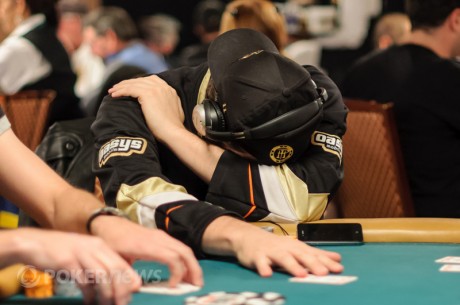The Poker Shrink, Vol. 50: Rehearsal

Rehearsal is exactly what you think it is: practicing something, often repeatedly, before you need to perform the act. We most often think of actors rehearsing scenes or lines of dialog and this is a perfect example of why rehearsing can benefit your poker game. Actors want to be completely familiar with their lines and with their movements before that have to perform a scene. The reason is that they want to be able to act in perhaps a variety of ways without having to focus on what words they have to say or what actions they must perform as their character. Acting is not about the words; it is about how an actor delivers in thought, word and deed.
Now think about that, as it applies to poker. You not only don't want to give away any clues about your hand or your thoughts at a poker table, you also sometimes want to give false tells instead. So there are several aspects to rehearsing that apply to poker. First and foremost, you don't want to choke when you should be making the big bet or even the big laydown. For example:
A player pushes all in and if you make the call, you are all in for your tournament life. Your read tells you that you have a 65% chance of being ahead and the huge pot demands that you make the call… but…. it is for all your chips and this is a big tournament and you will still have a just-below-average stack if you fold. What if your read is wrong? You lack the confidence; you are questioning yourself at the table.
At this point I would ask: "Have you ever had to make this decision before?" Ever been in this situation in a $5 tournament online or a low-limit cash game? If not, why not? Rehearsing for a big poker decision requires that you play enough at very comfortable limits that you have experienced this kind of situation before. It's not enough to have read about it in a book and definitely not enough to simply know the pot odds. You need to have been here before and made the move.
Just for a minute, recall several of the biggest hands you have ever played; it doesn't matter if you won or lost the hand. You remember them, don't you? I will venture that you don't remember the next time a similar situation came up in a later tournament because you already had that move in your arsenal. You had rehearsed it in a real-time tournament situation and you made the move; probably, you have made it several times since. Rehearsing does a couple of things for your game.
First, rehearsing gives you the confidence to make the right move. That confidence means you are also not going to be giving off any physical tells, like shaking hands or fumbling chips. This rehearsed steadiness means you also are ready to give false tells and dupe your opponents. Rehearsal also means that you will be able to maintain your steady action even in the pressure hands. If you always take 30 seconds to check, raise, bet or fold; then even at this pressure point of the tournament, you will take 30 seconds because you have rehearsed under pressure.
The obvious question is: Can a decision in a $5 sit-'n'-go really be the same as one in a World Series of Poker tournament? The answer is yes! But you have to rehearse as if that $5 table meant something. You have to bring your "A" game and you must make the decision based on the same poker skill and knowledge that you would bring to a WSOP final table. If it's "just a five-buck satellite" then you are not optimally rehearsing. And without that focus and commitment, the rehearsal will not give you the confidence or physical control to make the same move in the big event.
Now get out there and do it… and do it again.








